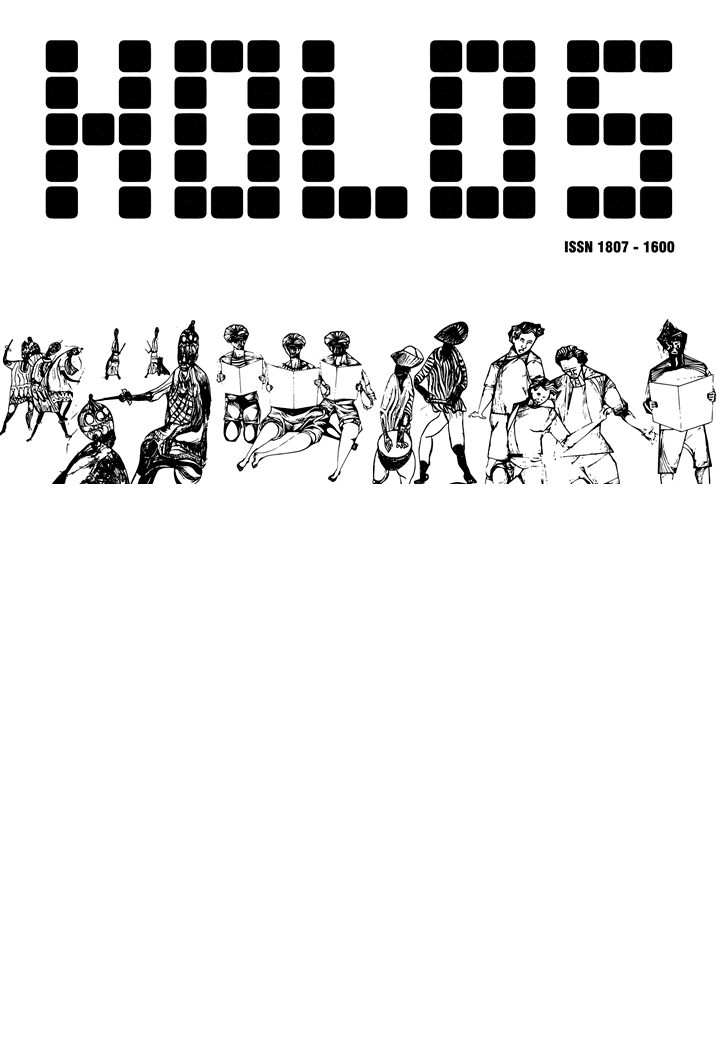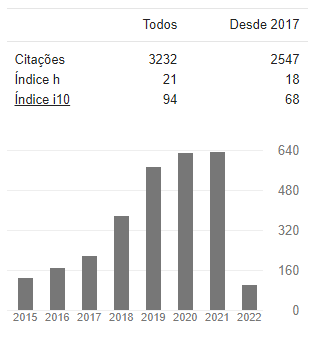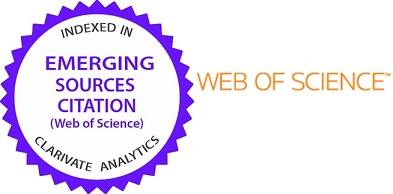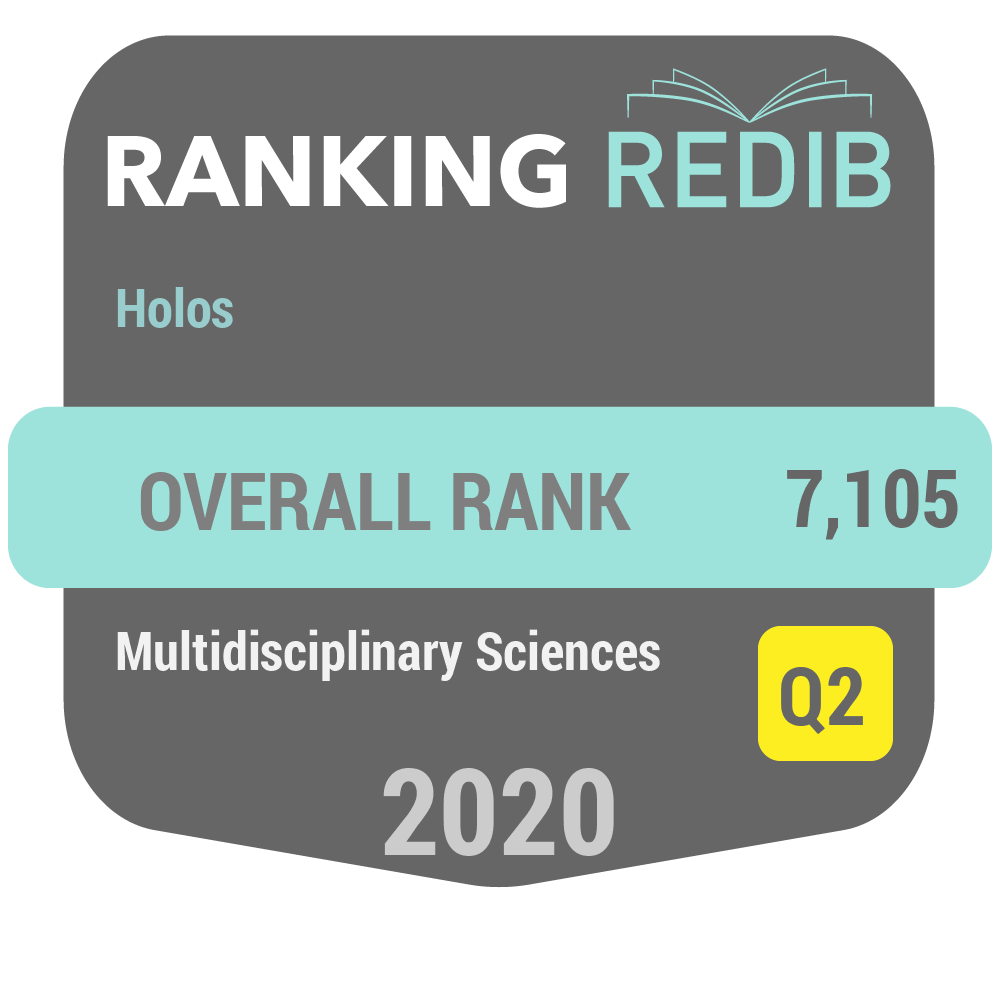THE CHINESE FOOTBALL DEVELOPMENT PLAN: SOFT POWER AND NATIONAL IDENTITY
DOI:
https://doi.org/10.15628/holos.2017.5750Palavras-chave:
development, football, China, national identity, soft powerResumo
In April 2016, the People's Republic of China (PRC) launched the "football development plan in the medium and long term (2016-2050)." The Chinese Government's goal is clear: making the Asian country a worldwide football superpower. This article will showhow the Chinese strategy is organized in its three stages, with commitments and goals to be reached at the end of each one of them. Including the President Xi Jinping "three dreams of World Cup" audacious plans: return to dispute the FIFA World Cup, host a World Cup edition and, finally, win a World Cup to thus consolidate the country 's football power in the most popular sport on the planet. The article also intents to demonstrates how the Chinese state induces private investment in football and sports industry. Showing that the large Chinese conglomerates have beeing collaborated in a crucial manner so that the government achieves the objectives outlined in its plan. And while China is moving towards the development of the most popular sport on the planet, the article brings to the theoretical discussion issues such as soft power and sport's influence, especially football, in the identity and national pride. Brought to a conclusion that the Chinese state has taken advantage of the football popularity to exercise 'soft power', strengthening diplomatic ties and placing the country in the Asian and worldwide context, but also to reinforce their people sense of national identity. For this, the article resorts to the bibliographic review, comparative study, in addition to analyzing the football development plan.
Downloads
Referências
Ahmed, M. (2017). Alibaba to sponsor next 6 Olympic Games. Retrieved January 19, 2017, from https://www.ft.com/content/b5e16726-de1e-11e6-9d7c-be108f1c1dce
Allison, L., & Monnington, T. (2002). Sport, Prestige and International Relations. Government and Opposition, 37(1), 106–134. https://doi.org/10.1111/1477-7053.00089
Brannagan, P. M., & Giulianotti, R. (2015). Soft power and soft disempowerment : Qatar , global sport and football ’ s 2022 World Cup finals. Leisure Studies, 34(6), 703–719. https://doi.org/10.1080/02614367.2014.964291
Brentin, D., & Tregoures, L. (2016). Entering Through the Sport’s Door? Kosovo’s Sport Diplomatic Endeavours Towards International Recognition. Diplomacy & Statecraft, 27(2), 360–378. https://doi.org/10.1080/09592296.2016.1169799
Cha, V. (2016). Role of Sport in International Relations: National Rebirth and Renewal. Asian Economic Policy Review, 11(1), 139–155. https://doi.org/10.1111/aepr.12127
Chadwick, S. (2016). How One Belt, One Road is guiding China’s football strategy. Retrieved November 22, 2016, from http://www.scmp.com/sport/soccer/article/2044812/how-one-belt-one-road-guiding-chinas-football-strategy
Chadwick, S., Widdop, P., & Parnel, D. (2017). A feast for wolves. Retrieved January 6, 2017, from http://www.policyforum.net/a-feast-for-wolves/
China. (2016). China Football for Middle and Long-Term Development Planning.
Duerr, G. M. E. (2016). Civic integration or ethnic segregation? Models of ethnic and civic nationalism in club football/soccer. Soccer & Society, 970(September), 1–14. https://doi.org/10.1080/14660970.2016.1166767
FIFA. (2016). The FIFA/Coca-Cola World Ranking. Retrieved November 25, 2016, from http://www.fifa.com/fifa-world-ranking/ranking-table/men/
Giulianotti, R. (2010). Sociologia do futebol – dimensões históricas e socioculturais do esporte das multidões. São Paulo: Nova Alexandria.
Giulianotti, R. (2015). The Beijing 2008 Olympics: Examining the Interrelations of China, Globalization, and Soft Power. European Review, 23(2), 286–296. https://doi.org/https://doi.org/10.1017/S1062798714000684
Hobsbawm, E. (1991). Nações e Nacionalismo desde 1780. Rio de Janeiro: Terra e Paz.
Hobsbawm, E. (2007). Globalização, democracia e terrorismo. São Paulo: Companhia das Letras.
Hong, F., & Zhouxiang, L. (2012a). China’s sports policy and politics in the post-Beijing Olympics era. International Journal of the History of Sport, 29(1), 184–189. https://doi.org/10.1080/09523367.2012.634992
Hong, F., & Zhouxiang, L. (2012b). From Barcelona to Athens (1992-2004): “Juguo Tizhi” and China’s quest for global power and Olympic glory. The International Journal of the History of Sport, 29(1), 113–131.
Hong, F., & Zhouxiang, L. (2012c). Sport in the Great Proletarian Cultural Revolution (1966-1976). International Journal of the History of Sport, 29(1), 53–73.
Hong, F., & Zhouxiang, L. (2012d). Sports and politics in the 1980s: The Olympic strategy. The International Journal of the History of Sport, 29(1), 74–97.
Hong, F., & Zhouxiang, L. (2013). The Professionalisation and Commercialisation of Football in China (1993–2013). The International Journal of the History of Sport, 30(14), 1637–1654. https://doi.org/10.1080/09523367.2013.828710
Jing, S. (2016). Fosun deal could kick-start new era for soccer industry. Retrieved November 26, 2016, from http://europe.chinadaily.com.cn/business/2016-01/19/content_23140474.htm
Jourdan, A. (2016). China’s Suning buying majority stake in Inter Milan for $307 million. Retrieved November 25, 2016, from http://www.reuters.com/article/us-soccer-inter-milan-suning-idUSKCN0YR03T
Kersting, N. (2007). Sport and national identity: A comparison of the 2006 and 2010 FIFA World CupsTM. Politikon, 34(3), 277–293. https://doi.org/10.1080/02589340801962551
Korneeva, V. A., & Ogurtsov, E. S. (2016). The Politicization of Sports as a Soft Power Public Resource. Indian Journal of Science and Technology, 9(29). https://doi.org/10.17485/ijst/2016/v9i29/89854
Lovisolo, H., & Soares, A. J. G. (2011). Futebol: construção histórica do estilo nacional. In R. Helal (Ed.), Futebol, jornalismo e ciências sociais: interações (2nd ed., pp. 33–51). Rio de Janeiro: Eduerj.
Nye, J. S. (2004). Soft Power: The Means to Success in World Politics (1st ed.). New York: PublicAffairs.
Nye, J. S. (2012). China and soft power. South African Journal of International Affairs, 19(2), 151–155. https://doi.org/10.1080/10220461.2012.706889
People’s Daily. (2017). China to build 50,000 football schools by 2025. Retrieved March 3, 2017, from http://en.people.cn/n3/2017/0222/c90000-9181128.html
Plunkett Research. (2016). Plunkett Research Sports Industry. Retrieved November 24, 2016, from https://www.plunkettresearch.com/statistics/sports-industry/
Pollina, E., & Segreti, G. (2017). Chinese investors looking to postpone closing of AC Milan deal. Retrieved March 3, 2017, from http://www.reuters.com/article/us-acmilan-m-a-closing-idUSKBN1672GO
Reuters. (2016). Alibaba discussing FIFA sponsorship : Bloomberg. Retrieved January 20, 2017, from http://www.reuters.com/article/us-alibaba-fifa-idUSKCN0Y9255
Samuel-Azran, T., Yarchi, M., Galily, Y., & Tamir, I. (2016). Promoting terror or sport? The case of Qatar’s international image. American Behavioral Scientist, 60(9), 1101–1115. https://doi.org/10.1177/0002764216632841
Sports, N. (2016). China and Football.
Tan, T.-C., Huang, H.-C., Bairner, A., & Chen, Y.-W. (2016). Xi Jin-Ping’s World Cup Dreams: From a Major Sports Country to a World Sports Power. The International Journal of the History of Sport, 3367(November), 1–17. https://doi.org/10.1080/09523367.2016.1243103
The State Council. (2016). Chinese sports industry aims to reach $460b in 5-year plan. Retrieved November 24, 2016, from http://english.gov.cn/state_council/ministries/2016/05/05/content_281475342468190.htm
TMS, F. (2016). FIFA Transfer Matching System. Retrieved November 24, 2016, from https://www.fifatms.com/wp-content/uploads/2016/06/China_fcbusiness_May2016.pdf
van Hilvoorde, I., Elling, a., & Stokvis, R. (2010). How to influence national pride? The Olympic medal index as a unifying narrative. International Review for the Sociology of Sport, 45, 87–102. https://doi.org/10.1177/1012690209356989
Ward, T. (2009). Sport and national identity. Soccer & Society, 10(5), 518–531. https://doi.org/10.1080/14660970902955455
Zhan, X. (2013). The History and Development Trend of China ’ s Sports Industry Policy, 400–402.









































